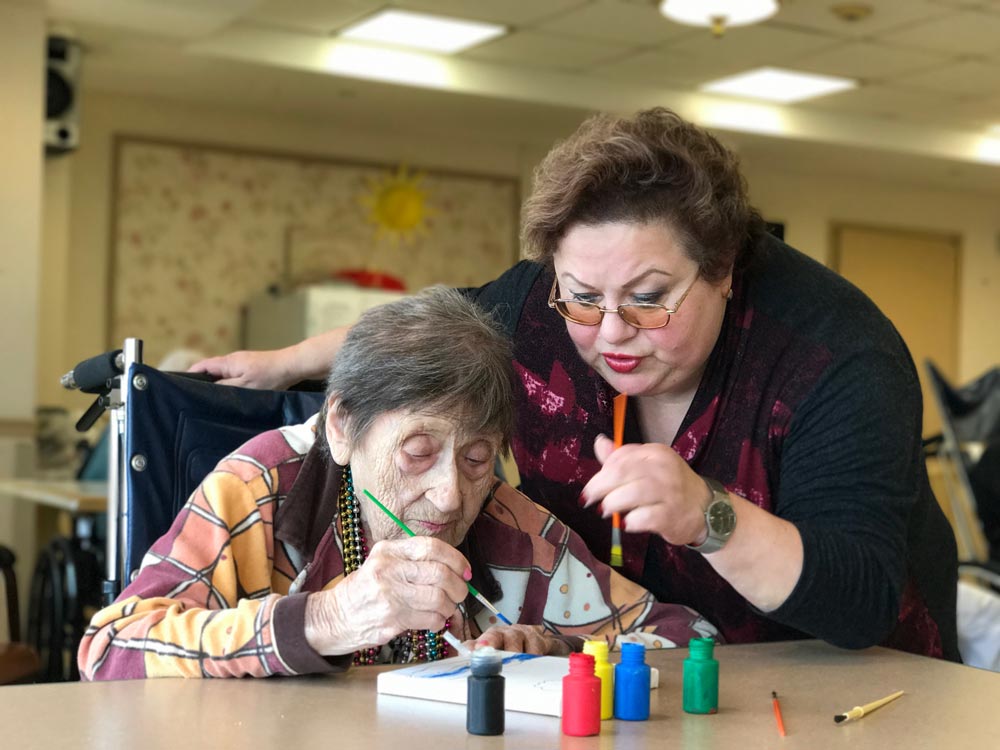Comprehensive Dementia Care Charlotte: Sustaining Families with Compassionate Solutions
Comprehensive Dementia Care Charlotte: Sustaining Families with Compassionate Solutions
Blog Article
Just How to Supply Customized and meaningful Mental deterioration Care
The stipulation of personalized and purposeful mental deterioration care requires a nuanced understanding of each person's one-of-a-kind history and choices. Care techniques should be tailored to engage the person in manner ins which reverberate with their previous experiences, consequently promoting emotional connections and boosting total health. Developing depend on with consistent and thoughtful interactions is essential for developing a safe and supportive atmosphere. As we explore the ins and outs of effective communication and the vital function of family members involvement, it ends up being clear that the trip toward personalized care holds both challenges and profound rewards.
Comprehending Mental Deterioration Originality

Treatment companies should examine cognitive capabilities, moods, and behavior patterns to develop tailored care plans. This may include adjusting interaction designs, utilizing familiar routines, and making use of purposeful tasks that reverberate with the person's previous experiences. Engaging an individual with an enthusiasm for music through music tasks might evoke positive memories and improve emotional well-being.
Moreover, recognizing originality fosters a thoughtful strategy that respects the self-respect and freedom of those dealing with mental deterioration. It encourages caretakers to listen proactively, observe behavior signs, and stay flexible in their caregiving methods (charlotte care home). By focusing on individuality, caretakers can not just enhance the top quality of life for those with dementia yet also develop an extra profound understanding of their distinct viewpoints, inevitably causing much more effective and understanding treatment
Structure Trust and Rapport
Developing depend on and rapport is fundamental in mental deterioration treatment, as it creates a risk-free and encouraging environment for individuals impacted by the condition. Building these connections requires consistent, thoughtful communications that focus on the demands and sensations of the person. Caretakers should approach interactions with empathy, recognizing the unique difficulties dealt with by those with mental deterioration, consisting of amnesia, complication, and psychological distress.
Caregivers need to utilize clear, straightforward language and non-verbal cues to convey understanding and assistance. Energetic paying attention demonstrates regard and validation, permitting people to share themselves without concern of judgment.
Familiarity with daily activities and caretakers advertises a feeling of security, allowing individuals to really feel more at convenience. By doing so, caretakers reinforce the individual's identification, advertising self-respect and respect, ultimately leading to stronger, much more significant connections in the context of mental deterioration treatment.
Tailoring Tasks and Involvement
Involving people with dementia via tailored activities can substantially enhance their lifestyle and cultivate a deeper connection between caretakers and those in their care. Customization is necessary, as it recognizes the distinct histories, interests, and abilities of each individual. Tasks should be created to promote cognitive functions, advertise physical movement, and motivate social communication, all while staying enjoyable and satisfying.
To tailor activities effectively, it is important to assess the individual's choices and cognitive abilities. Some may find delight in gardening, while others may appreciate music or art. Straightforward, familiar jobs can stimulate positive memories and offer a feeling of achievement. In addition, incorporating aspects of regimen can provide comfort and security, allowing individuals to engage with activities a lot more confidently.
Caregivers can improve engagement by participating along with the people, cultivating an interactive and encouraging environment. It is also essential to stay flexible and versatile, adjusting tasks as needed based on the individual's power levels and state of mind. Ultimately, purposeful engagement via tailored tasks not just uplifts individuals with mental deterioration however also improves the caretaker partnership, advertising shared satisfaction and understanding.
Efficient Communication Strategies
Efficient interaction is crucial in dementia treatment, as it promotes a feeling of link and understanding in between caretakers and individuals experiencing cognitive decline. Employing reliable communication strategies can considerably boost the high quality of communications and decrease stress for view it both celebrations.
To start with, using simple, clear language is crucial. Familiar words and short sentences assist individuals comprehend and respond better. Furthermore, keeping a tranquility and favorable tone can develop a calming atmosphere, which is important for individuals that might feel nervous or baffled.
Non-verbal communication plays a substantial duty. Caregivers ought to take notice of body language, faces, and motions, as these cues can typically communicate greater than words - memory care facility charlotte. Establishing eye call and utilizing mild touch can also strengthen connections and share compassion
Active listening is another key component. Caregivers ought to be alert, allowing individuals to reveal themselves totally, also if their speech is uncertain or fragmented. This lionizes and motivates much more open communication.
Last but not least, validating experiences and sensations is critical. Recognizing feelings, no matter their basis actually, can give comfort and strengthen the caregiver-individual connection, advertising a more helpful environment.
Sustaining Family Members Involvement
Household participation plays a significant function in the total care and support of people with dementia. Engaging relative creates a collaborative setting that boosts the top quality of care, promotes psychological links, and ensures that the distinct needs of the individual are met. Relative typically possess important understandings into the person's history, choices, and habits, which can be vital in developing individualized treatment strategies.

In addition, family participants can be urged to join day-to-day care tasks, such as participating in meaningful discussions or aiding with familiar routines. This not just assists receive the individual's feeling of identity yet also enhances domestic bonds. Inevitably, by promoting an inclusive strategy that values household contributions, care carriers can boost the overall experience for both individuals with find out here now dementia and their loved ones.
Final Thought
In conclusion, providing meaningful and individualized dementia care requires a comprehensive understanding of each person's special history and preferences. Jointly, these techniques add to boosted high quality of life for individuals with mental deterioration.
The provision of significant and customized dementia treatment needs a nuanced understanding of each individual's special background and choices. By doing so, caregivers enhance the person's identity, advertising dignity and regard, inevitably leading to stronger, a lot more purposeful relationships in the context of mental deterioration treatment.
Involving people with dementia via customized tasks can substantially boost their quality of life and promote a much deeper link between caregivers and those in their treatment.Family members participation plays a substantial function in the general care and support of linked here people with mental deterioration. Ultimately, by promoting a comprehensive technique that values household contributions, treatment service providers can enhance the total experience for both people with dementia and their enjoyed ones.
Report this page